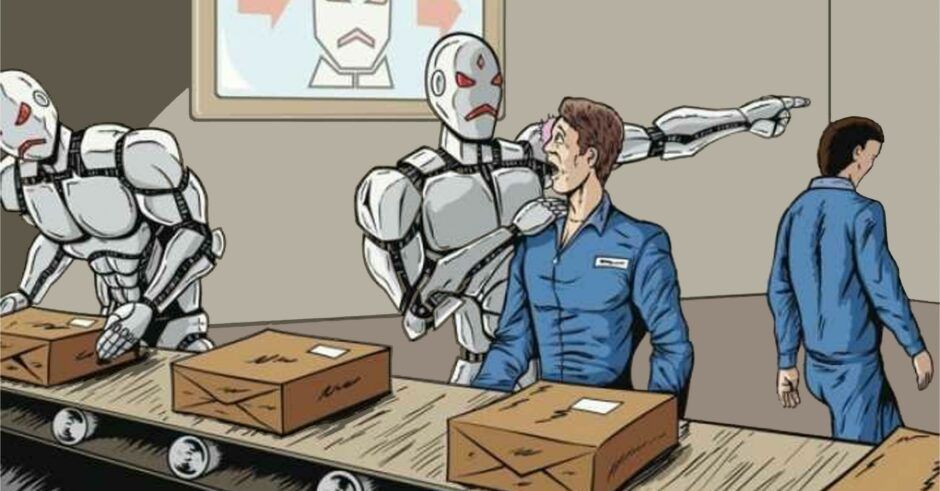Lots of people are afraid that robots, artificial intelligence [AI] and algorithms will soon outperform humans in lots of tasks and lead to mass unemployment. So is the solution to oppose and sabotage automation in your company?
Imagine you are a lawyer and you just found out that artificial intelligence is now better than humans in reviewing non-disclosure agreements [NDA]. So what do you do? One strategy is to hope nobody finds out and ignore the problem but what if it does not go away? Another is to actively tell management to go and test the new solution and secretly sabotage the test hence the outcome is negative and you are safe. If you don’t tell but NDA AI gets introduced you can try to make testing fail as well. A final one is to actively tell management and hope it works. You are far better off going for this strategy than any other and here is why!
Any company that willingly ignores automation will become worse every day at serving its customers. If this continuous their and the industry’s “disruption premium” goes up. Disruption premium is what you win if you disrupt an industry and make their existing way of working irrelevant. Disrupting how people get transported every day, a.k.a. driving cars, means you are able to convert the second biggest spend most families have, i.e. buying a car, into a monthly subscription, i.e. transport as a service via autonomous cars. Whoever disrupts the habit of 100’s of millions of people tend to convert themselves into a multi-billion new business, e.g. Netflix and making broadcast TV irrelevant. So by not actively automating away inefficiencies, companies and industries are opening themselves up to competition from startups and tech giants which will eye the enormous disruption premium. When employees massively oppose innovation and automation they might temporarily save their job but augment the chances their industry gets made irrelevant. What is the worst position to be in when you are unemployed? To be an expert in a skill that is no longer relevant, e.g. designing diesel cars. Chances you find another job that pays better than the previous one are very slim.
However, if you analyse why computers are able to make your job irrelevant then you will see that it has got to do with repetition. If a lawyer in a 40-year career can review 20,000 NDAs then they will never be able to outperform an algorithm that can process millions of NDAs in seconds. It is like trying to outrun a sports car.
Where humans beat, and will continue to beat, computers is in novelty. Humans are exceptional in handling situations and problems they have never seen before. Since training computers need processing often millions of instances before performance gets close to human performance, focusing on novelty aspects will beat the algorithms every time.
What happens if employees actively start to look for ways to automate the repetitive parts of their job away? The company becomes super efficient. These employees now have more time to focus on novelty projects, a.k.a. Innovation. So at the same time, customers will get existing processes done in seconds that used to take days and find daily a mix of new products and services they can buy as well. The outcome of this will be that the disruption premium goes down and as such in the long term the industry survives, even prospers, and all employees are doing novel and exciting new things every year.
Conclusion? Please, robot takes away my boring shores and #AIMe, so I can make my current job irrelevant and focus on a more novel, exciting and innovative jobs next, because that will benefit not only me, my company but the whole industry…


